Monday, 2/26/2024

The School of Economics and Management of the University of
Minho is proud to announce that its doctoral student has defended his doctoral
thesis entitled "What is the economic value of culture? Essays on the
valuation of cultural activities and consumer preferences".
The thesis was defended on February 22, 2024, at the School
of Economics and Management of the University of Minho, through some essays on
the valuation of cultural activities and consumer preferences, having made
significant contributions to the understanding of the economic value of
culture. Thus, and as summarized below by the author himself, his thesis allows
us to conclude that the benefits associated with the consumption of cultural
goods and services go beyond their consumption dimension, although they derive
their utility through their consumption.
“The individuals derive utility from cultural goods and
services consumption. The benefits associated with their provision go beyond
their consumption dimension. The externalities are one of the main market
failures and justify public intervention to ensure a more efficient allocation
of economic resources by regulation and subsidies. For the monetary dimension
of this intervention, it is necessary to know the value of the good or service.
Because monetary value can transcend the market transaction price, when the
market exists, but sometimes it does not, the work estimates both use and
non-use values, for a concert, an educational service program, and the
preservation of a specific cultural landscape, using a stated preference
technique.
The consumer's preferences for cultural goods and services
have a learning-by-consuming characteristic and this preferences formation
process may explain the slow audience recovery after COVID-19 time in some
erudite concert venues. On one hand, the utility derived from consumption
decreased after this period; on the other hand, the income level of the
consumer is a key driver of the value. Then, public intervention should invest
in educational services, a field where individuals show great support to public
funding, and in the digitalization process to include more audience, engaging
consumers where presential fruition is disrupted.
Finally, even if public investment in culture can be
considered regressive because the audience could eventually consume without
public support (direct or indirect) and once the value that consumers derive is
higher than the ticket price (non-use value effect, individuals with a lower income should have
an access price that does not restrict them from their direct benefits (equity
policy and price discrimination).
Public intervention is very broad because, it has the
competence of heritage classification and conservation of its domain. The
cultural landscape does not have a defined market but there is a value that can
contribute to the increased well-being of individuals. Gender (male), higher
income, political ideology, and sensibility about environmental cautions have a
positive impact on the importance attributed to the cultural landscape.
Cultural policies must consider the sustainability of tourism, as well as consumers'
perceptions regarding the cultural, social, and environmental protection of
territories and populations. There is a favorable opinion regarding the use of
fiscal instruments, such as tourist tax, to preserve the cultural landscape.”
João Silva's research is therefore fundamental to the
formation of more efficient public policies adapted to the provision of
cultural goods.
His doctoral thesis was supervised by Professor Lígia Pinto,
a lecturer in EEG's Economics Department.
EEG - School of Economics and Management congratulates João
Silva on his defense and wishes him the best professional and personal success.
Gabinete de Comunicação
Escola de Economia e Gestão
Universidade do Minho
Telefone: 253 604541
Email: gci@eeg.uminho.pt

